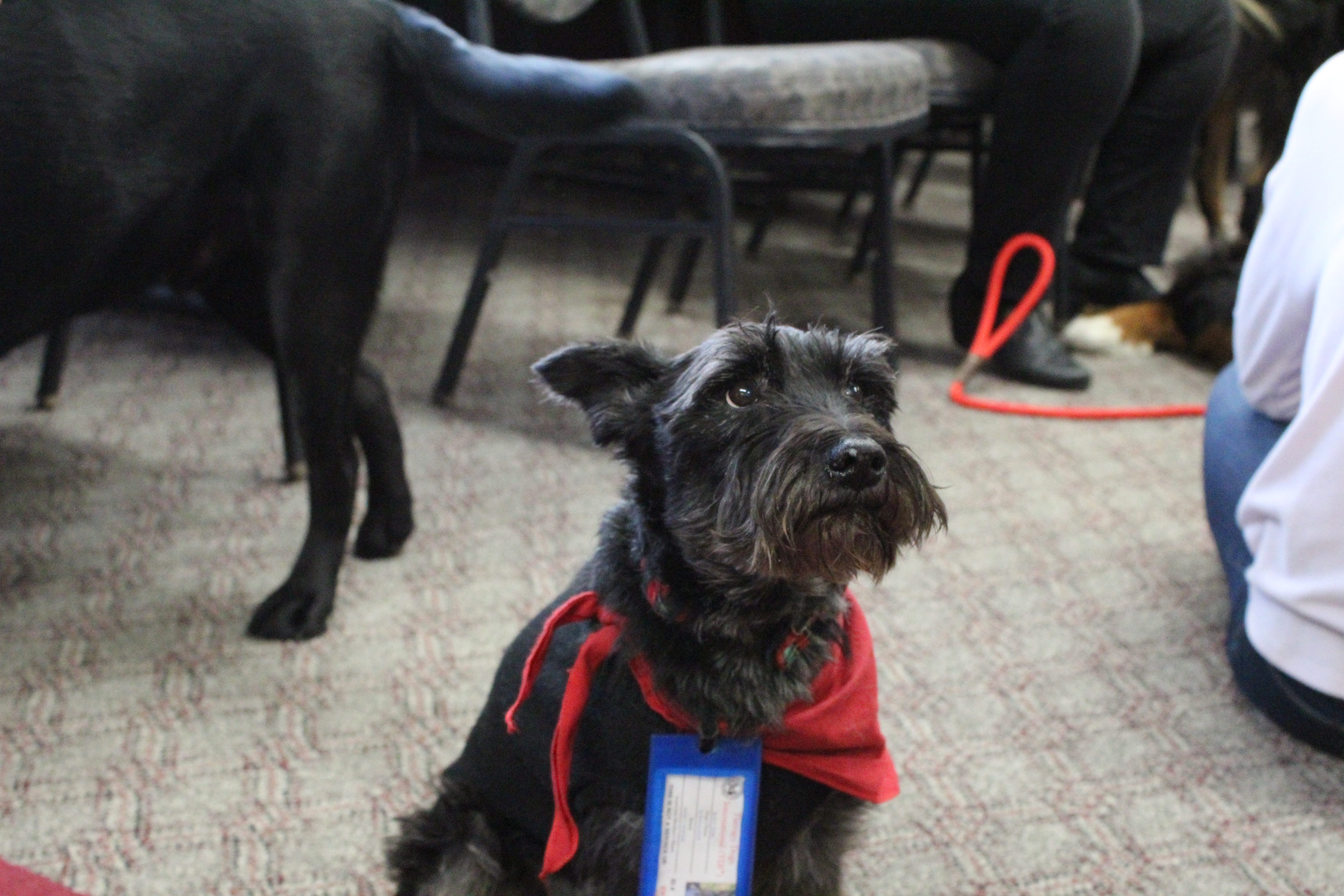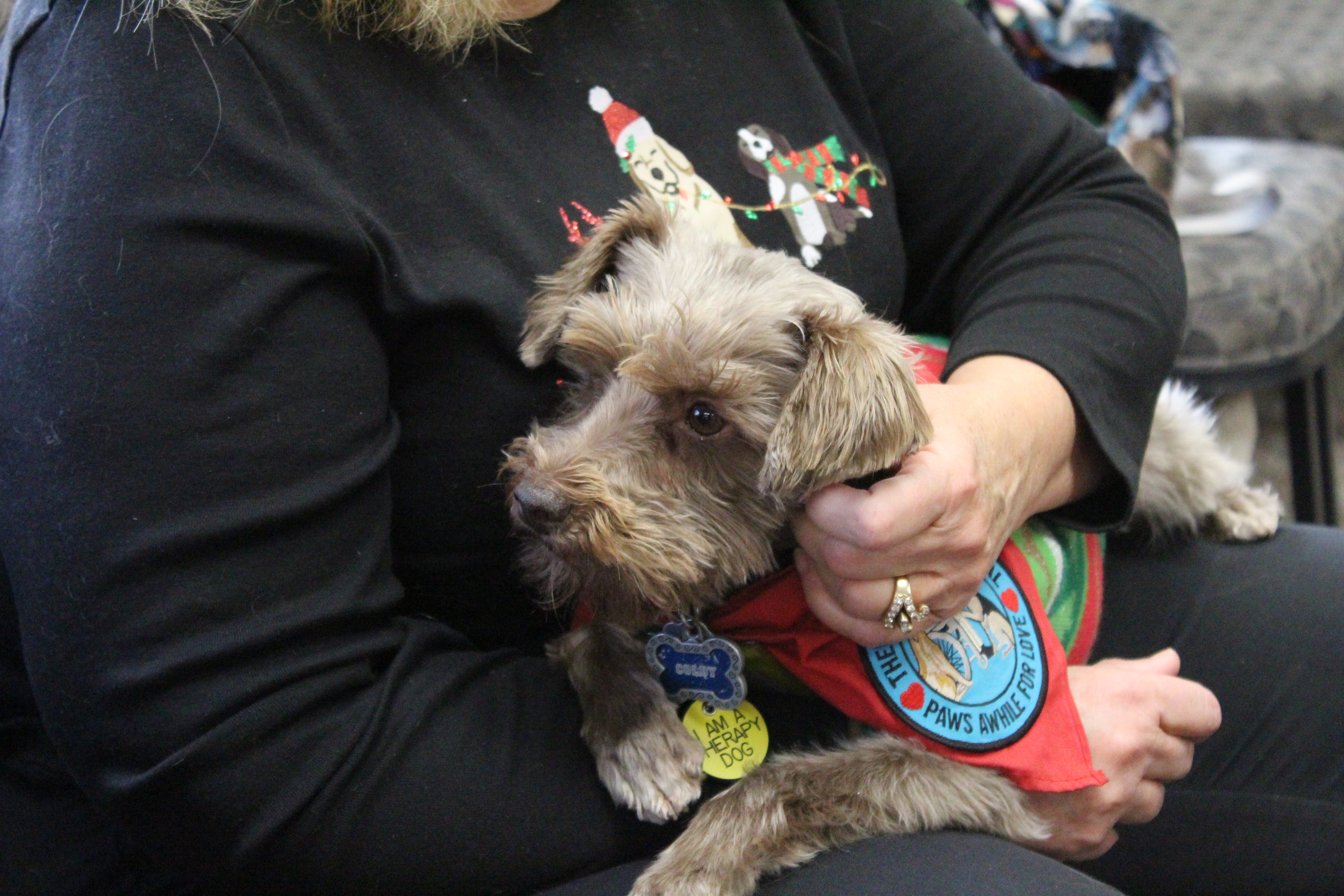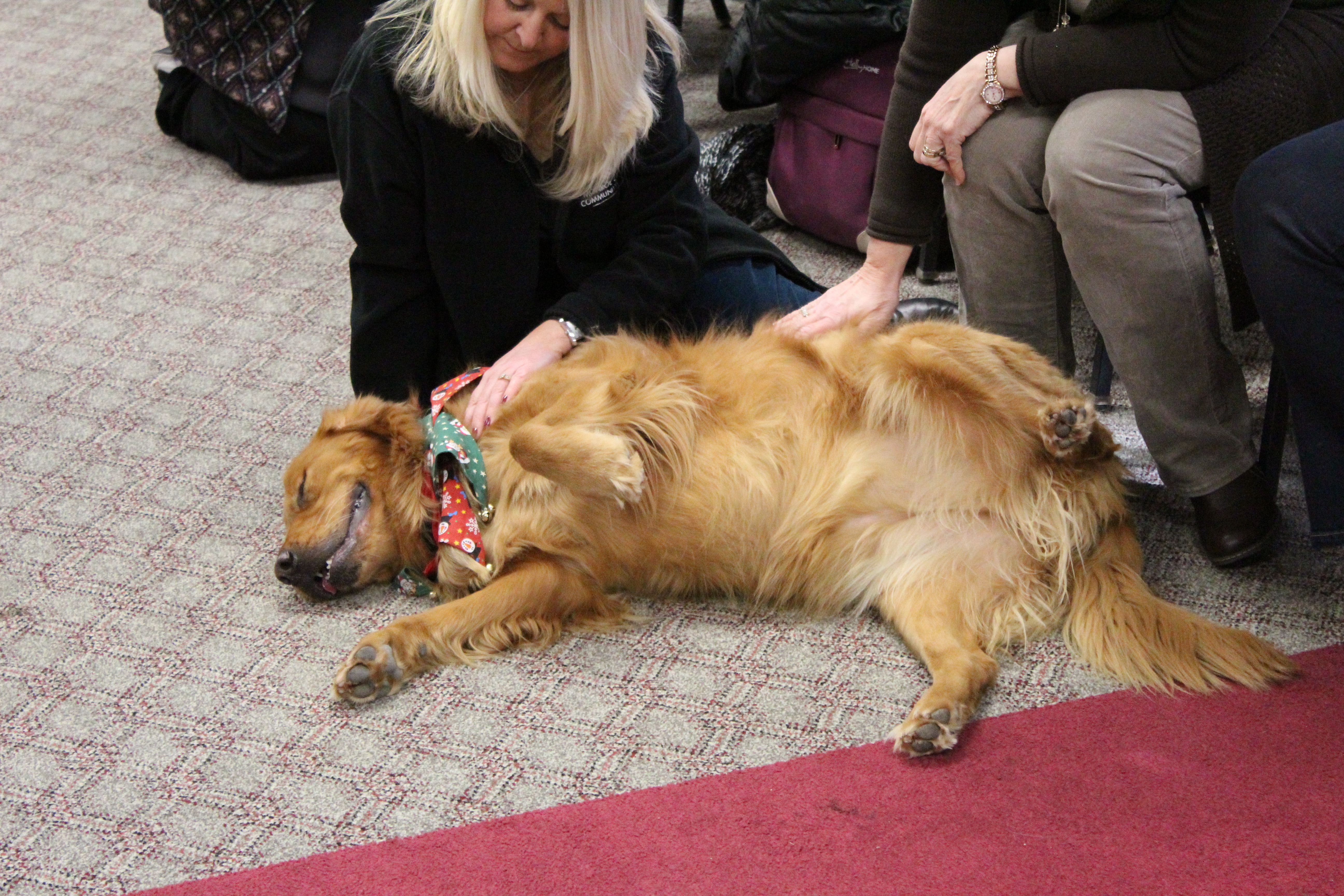Over five therapy dogs were brought to campus Dec. 12 for the annual Furry Finals event.
The event was held from 11 a.m. to 1 p.m. in the A Building and hosted Therapy Dogs International Chapter 307.
“We visit folks to de-stress and calm people down,” said Stephanie Suydam, a member of Chapter 307.
Suydam said the organization visits schools, colleges, courts for certain cases, sometimes Promedica Hospital and more.
Suydam said she has been involved for about 8 years.
“I did it with my previous dog,” she said.
A variety of breeds were brought ranging from a large 3-year-old Golden Retriever named Casey, to a small partially blind 11-year-old Schnauzer named Rolf.
Mary Goode, a member of Chapter 307 and owner of Rolf, said he has been a therapy dog for over 10 years.
“(He) has a good knack for finding the people who need the help,” Goode said.
Goode said Rolf has been a part of over 1000 visits through his career and his specialty is giving people kisses.
The event also was the first visit for one dog.
Brody, a 15-month-old Black Lab, was recently certified as a therapy dog.
Colette Tibai, student, said with the finals causing a lot of stress, it was nice to have dogs on campus to help lower it.
Cheryl Wassus, coordinator of Chapter 307, said any dog can can become a therapy dog.
“Its about the temperament,” Wassus said. “They have to be friendly and confident.”
Wassus said despite similarities, there is a difference between therapy dogs, service dogs and emotional support dogs.
She said therapy dogs only go through training to get certified for their temperament and are strictly for stress relief.
“(Service dogs) have more rigorous training,” Wassus said.
Wassus said service dogs have full access to most public areas because their owner needs them.
Support dogs, however, are only for an owners therapeutic benefit and are more like a companion, Wassus said.





